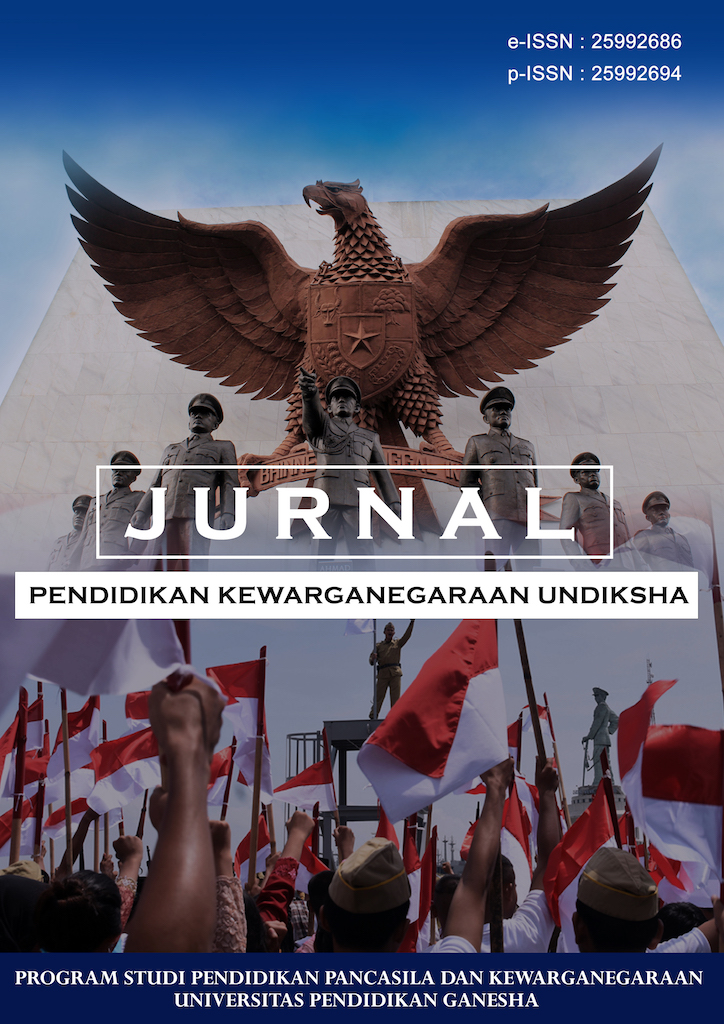PENGELOLAAN PERBATASAN DARAT ANTARA INDONESIA DAN MALAYSIA DALAM PEMENUHAN HAK PENDIDIKAN DALAM KONSTITUSI REPUBLIK INDONESIA
DOI:
https://doi.org/10.23887/jpku.v8i2.25440Abstract
The border region of a country has a strategic value to support national economic growth. Regional development is an effort to encourage harmonious regional development through a comprehensive approach that includes physical, economic and social aspects.
Development of border areas is carried out by utilizing existing resources, especially local resources. These resources include human resources, local social culture, and also natural resources. Considering that most of the border areas are conservation forests and natural reserves that need to be protected, the development of border areas must be adjusted to the carrying capacity and the capacity of the environment.
Border areas are generally areas that have vulnerabilities. However, one of the ways to overcome the vulnerability is actually to develop economic potential through investment activities in the friend so that interaction between the neighbors of the two neighboring countries occurs but still must pay attention to the applicable regulations. The security approach views border areas as areas that are in direct conflict with other countries so that there needs to be oversight of security to maintain the integrity of a country. The security approach will see the border region as an area that has strategic value for national interests in accordance with its function in national defense and security.Downloads
Published
Issue
Section
License
Authors who publish with the Jurnal Pendidikan Kewarganegaraan Undiksha agree to the following terms:
- Authors retain copyright and grant the journal the right of first publication with the work simultaneously licensed under a Creative Commons Attribution License (CC BY-SA 4.0) that allows others to share the work with an acknowledgment of the work's authorship and initial publication in this journal.
- Authors are able to enter into separate, additional contractual arrangements for the non-exclusive distribution of the journal's published version of the work (e.g., post it to an institutional repository or publish it in a book), with an acknowledgment of its initial publication in this journal.
- Authors are permitted and encouraged to post their work online (e.g., in institutional repositories or on their website) prior to and during the submission process, as it can lead to productive exchanges, as well as earlier and greater citation of published work. (See The Effect of Open Access)










